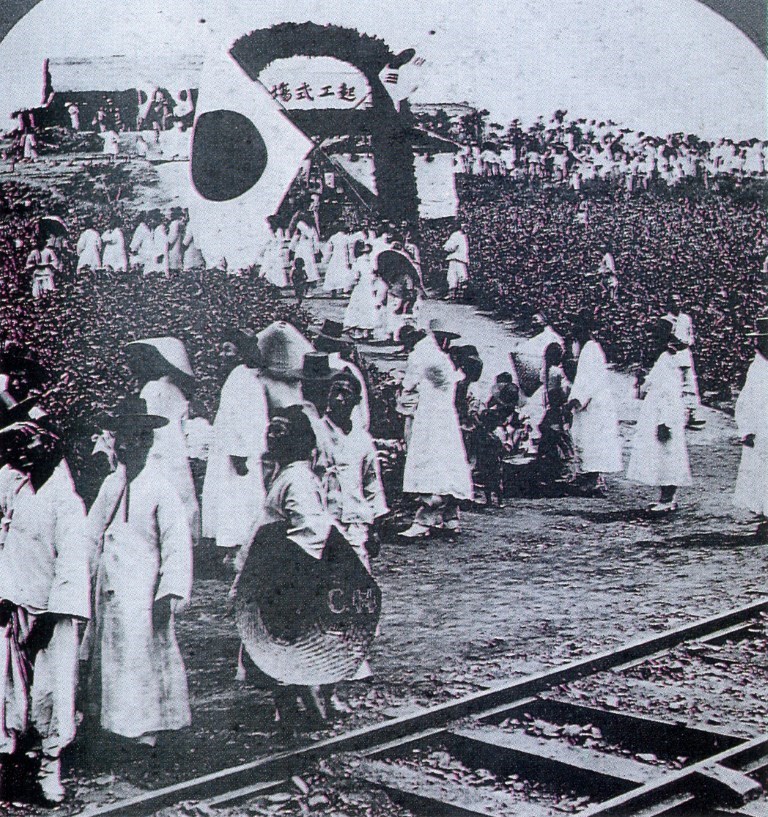Japan sanctions South Korea
July 5, 2019 | Expert Insights

Background
Japan conscripted 7.8 million South Koreans as forced labour or soldiered its imperial expansion before and during World War II. 50,000 to 200,000 Korean women – now known as ‘comfort women’ were sent to Japanese military-run brothels.
After World War II, South Korea sought compensation on behalf of these workers. In the 1965 pact which established diplomatic relations between the two nations, Japan provided $300 million in aid and $200 million in loans. After South Korea’s first democratic elections,many workers began seeking damages, first in Japanese courts and since 2000 in South Korea itself.
In October 2018, the Supreme Court of South Korea rejected appeals to overturn a 2013 order requiring Nippon Steel to pay compensation of an individual sum of 100 million won (US$87,700) to four South Korean workers who underwent forced labour.
The Supreme Court of South Korea followed up with two similar judgments against Mitsubishi Heavy Industries. Cases against 70 Japanese companies — including Toshiba, Panasonic and Nissan — are pending in lower courts, which have begun to rule in favour of the plaintiffs.
Analysis
The Japanese government announced that it would be tightening regulations on the export of several chemicals used in chip and smartphone production to South Korea, which comes in at a time when the row with Seoul over wartime labour is ongoing. The new rules on the regulations took effect on July 4.
In a statement, the Ministry of Economy, Trade and Industry noted that the export control systems were built based on international relations of trust between Japan and Seoul, and this has been significantly harmed.
The Japanese government said it will delist Korea from a whitelist that benefited 27 countries with simplified export regulation. Export contract involving one of the three chemicals - photoresists, hydrogen fluoride and fluorine polyimide will now take at least 90 days for government approval. Japan accounts for nearly 100 per cent of global production of fluorinated polyimide and photoresist and produces about 70 per cent of the world’s hydrogen fluoride.
Photoresists are the core materials for photolithography, part of the chipmaking process. Hydrogen fluoride is used for the etching process of chipmaking, and fluoride polyimide is a key material in making flexible organic light-emitting diode display panels. More than 90 per cent of the materials used by Korean firms are from Japan, say the related industries.
This move follows Tokyo's recent increase in inspections of some South Korean seafood that began last month, which was reportedly carried out in retaliation for continued curbs on imports of food from areas affected by Japan's 2011 Fukushima Daiichi nuclear disaster.
Korea’s chipmakers expressed concerns over the restrictive measures. South Korean chipmakers control 70% of the global market for dynamic random access memory and 50% for NAND flash memory. The South Korean government reacted promptly and is considering filing a lawsuit with the World Trade Organization. An official of the South Korean Trade, Industry and Energy Ministry stated that the restrictions announced by Japan, violate international law.
The militaries of both countries, long quiet during these political storms, have now begun to be entangled in the growing animosity. Last December, Japan’s Maritime Self-Defense Force alleged that a South Korean naval vessel targeted Japanese surveillance aircraft with its fire-control radar as the aircraft approached a search and rescue exercise.
- The decision could disrupt global supply chains as chips made in South Korea would go into chips and devices made by Apple, Huawei Technologies, computers manufactured by HP and the Lenovo Group, as well as televisions from Sony and Panasonic.
- Although senior military officers, mindful of the operational necessity of military cooperation between the United States, Japan, and South Korea - had initially sought to avoid the nationalistic sentiments, it is likely that they are susceptible to change their stance, according to the changes in the public’s disposition.
- Apropos North Korea, South Korea’s desire to relax sanctions on Pyongyang runs counter to Japan’s insistence on maintaining an international coalition to support a far more restrictive UN position on forcing denuclearization. We feel that Tokyo has worked hard to persuade UN members (the United Kingdom, France, Australia, and Canada) to monitor sanctions implementation through maritime patrols and surveillance. We believe that for Tokyo to abandon this hard-won international consensus would be equivalent to giving up on the UN’s role in global security.
- We believe that Japanese leaders are likely to challenge China, but South Korean leaders would perceive this as an opportunity for peace in a far less confrontational posture. This is because the reunification of the Korean Peninsula will require Beijing’s acquiescence, if not approval.








Comments